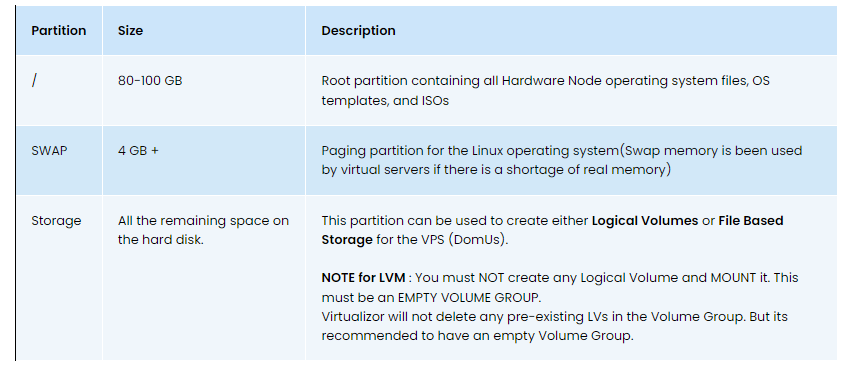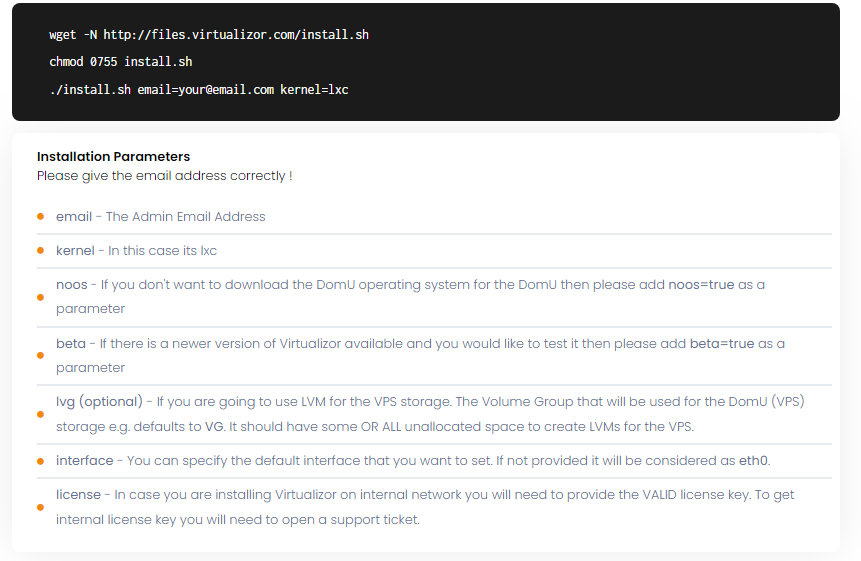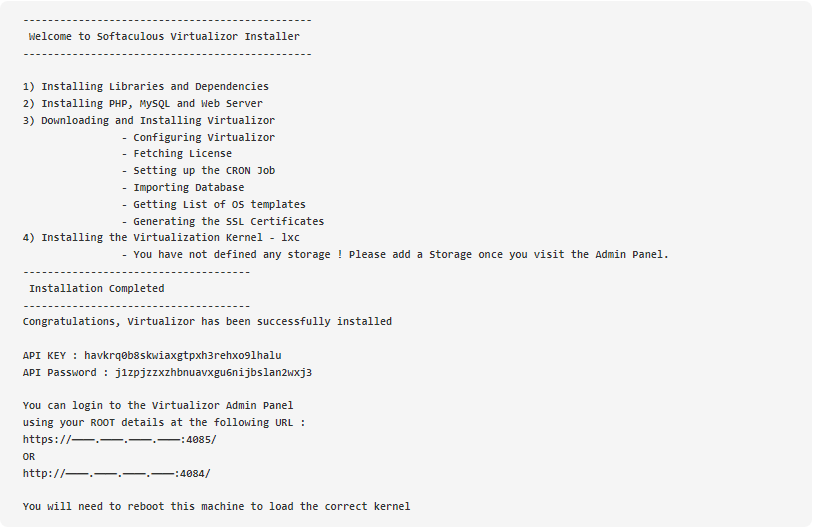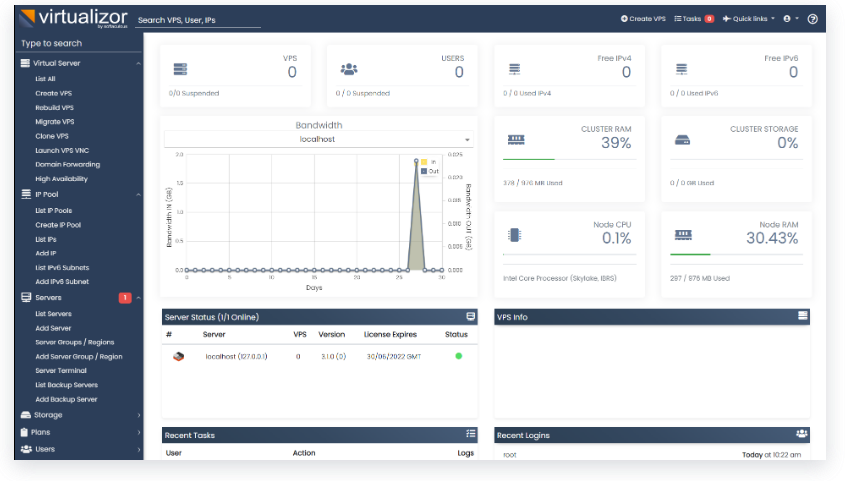Intro: This article is based on how you can install LXC on Virtualizor.
What is LXC?
LXC is a userspace interface for the Linux Kernel containment features. It is a powerful API and simple tool. It allows Linux users to create and manage system or application containers.
Features
Current LXC utilizes the following Kernel features to continue the steps:
- Kernel namespaces (ipc, uts, mount, pid, network and user)
- Apparmor and SELinux profiles
- Seccomp policies
- Chroots (using pivot_root)
- Kernel capabilities
- CGroups (control groups)
Requirements
Make the following segregation of the Hardware Node:

Installation
For installation, you’ve to open a Shell Terminal (e.g. PuTTY) and SSH to your server. Use the following commands:

The installation will start soon and if your network speed is slow then installation might seem stopped. but let it be continued. You will see something like this:

After installation, you’ve to restart your machine.

Note:
You can visit the Admin Panel to develop the storage and the virtual servers and also manage the server. A log file of the installation process will be created – /root/virtualizor.log
Ports
Virtualizor utilizes port 4081 – 4085. If there is any firewall restricting this, you need to follow these ports:
For RHEL & CentOS < 7

For RHEL & CentOS 7+

Note: If you’re going to utilize Webuzo templates for VM creation, please allow ports 2002 – 2005
Supported Storage Types
- ( LVM | Thin LVM | ZFS | ZFS Thin | ZFS Compressed | ZFS Thin Compressed )
Login
Visit the Admin Panel of Softaculous Virtualizor for login, further, you’ve to browse the following URL.
https://Your-Server-IP:4085/
http://Your-Server-IP:4084/
Log in with the servers’ root information.

Admin Panel
Once you’re logged in, you’ll get the screen of the Admin Panel Dashboard.
